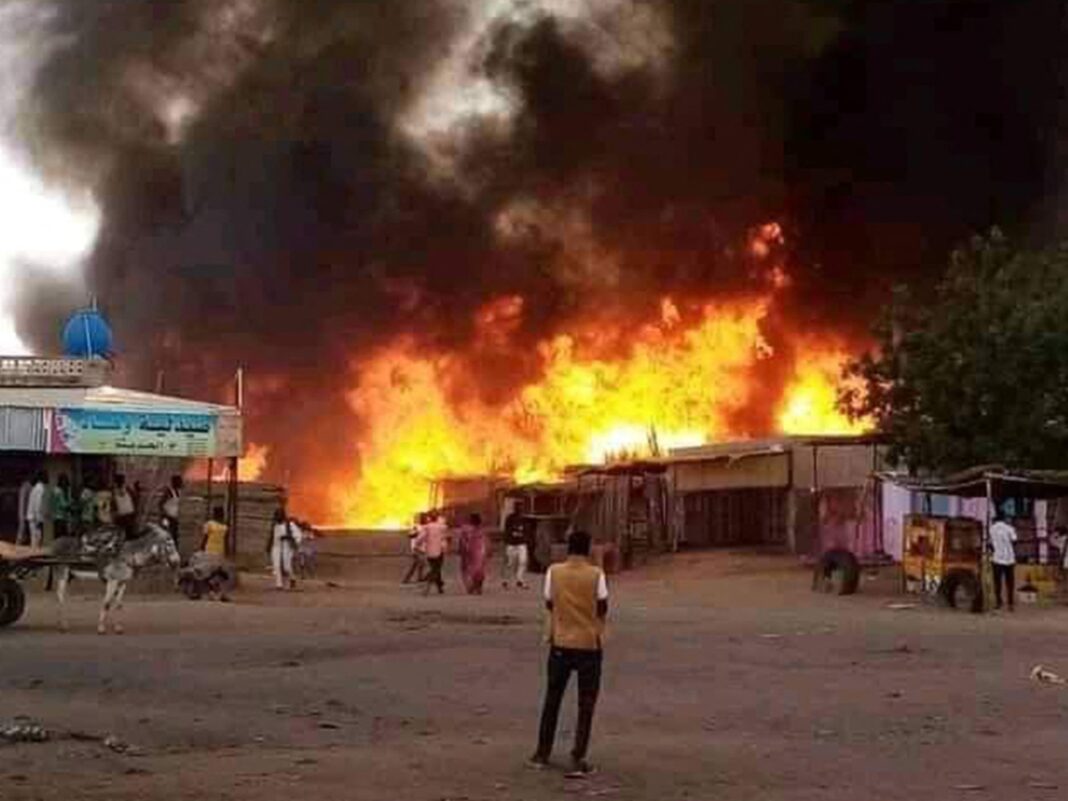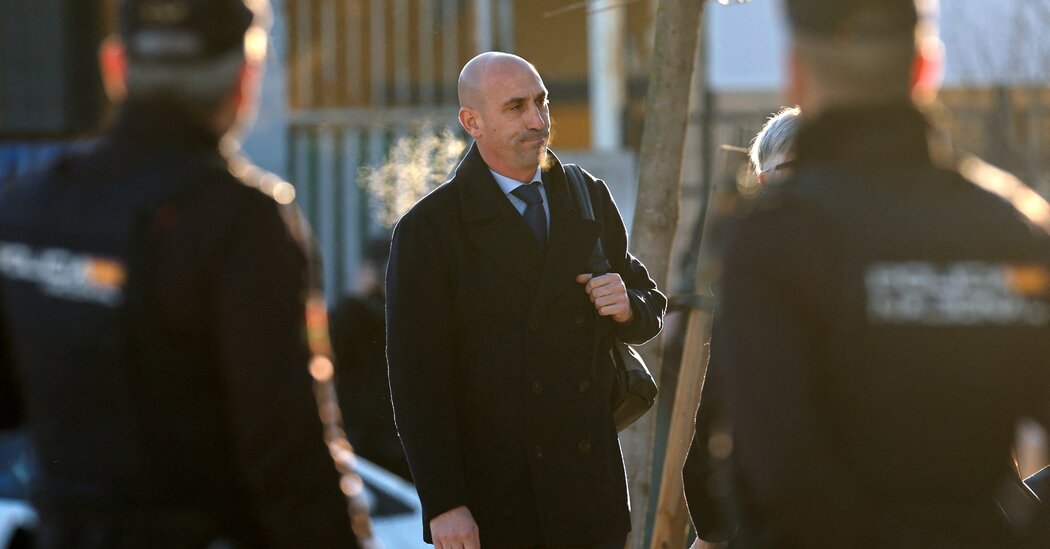Sudan’s army could lose the last major city it controls in the western region of Darfur within days to the paramilitary Rapid Support Forces (RSF), according to analysts, local monitors and RSF sources.
Observers fear this could lead to crimes against humanity by the RSF and a humanitarian catastrophe in el-Fasher, the capital of North Darfur state.
Ali Musabel, an RSF adviser, told Al Jazeera: “The RSF will free el-Fasher … in about 10 days.”
The RSF has launched drones, fired artillery and surrounded el-Fasher from the east and west since January 21, according to the Humanitarian Research Lab at Yale University, which relies on satellite imagery analysis.
Al Jazeera spoke to four sources in North Darfur who corroborated those findings.
“The RSF always attacks from the east [to distract the enemy], but then finishes them off from the west,” said Nathaniel Raymond, executive director of the Humanitarian Research Lab.
Major push
In April 2023, a power struggle between the RSF and the army erupted into civil war.
Credible reports reveal the RSF carried out mass killing and systematic gang rape to capture South, East, Central and West Darfur by November 2023.
Rights groups accuse both sides of committing atrocities.
The RSF besieged el-Fasher after several previous antigovernment armed movements known as the Joint Forces sided with the army in April to protect the city against a potential RSF attack.
Despite its military advantages against the Joint Forces, the RSF could not take el-Fasher as the rainy season stretched into October and flooded roads, impeding RSF vehicles from getting there, Raymond said.
The RSF, which got bogged down in central and eastern Sudan as the army fought to recapture lost territory, is focusing on taking el-Fasher and cementing control over Darfur to make up for losses elsewhere, analysts and local monitors said.
On January 25, the group killed at least 80 people in an attack on Borush village, about 170km (105 miles) east of el-Fasher, according to Darfur24, a local news source monitoring developments on the ground.
Al Jazeera’s authentication agency, Sanad, verified a video uploaded by RSF fighters in which they can be seen counting the number of people killed in Borush.
Every body was lying in a pool of blood in a trench and appeared to be in civilian clothes.
“The civilians picked up weapons to try and protect their land. Most civilians in North Darfur have picked up some sort of weapons … to defend themselves from the RSF,” said Zakaria Mohamed, a local journalist.
Musabel said those killed were legitimate targets because they were armed.
“They mobilised with weapons to attack and threaten the RSF,” he said in a voice note.
“They stole two of our cars, so we responded by killing the armed men.”
Al Jazeera’s reporting, human rights groups, and United Nations experts have documented countless RSF attacks against defenceless civilians. They have often carried out summary executions and driven entire communities off their land.
Fearing similar atrocities, communities across Sudan have picked up weapons in an attempt to protect themselves from the RSF.
Finishing the genocide?
Civilians in the Zamzam camp for displaced people are particularly at risk if el-Fasher falls, according to rights groups and analysts.
The camp is about 15km (9.3 miles) south of the city’s centre and had a pre-war population of about 300,000 people.
The mass displacement of the current war has swollen the population to more than half a million, many of whom are from “non-Arab” sedentary farming tribes.
They fled what many experts describe as genocidal violence by state-backed “Arab” nomadic tribal militias, which started in 2003.
At the time, the central government outsourced a brutal campaign to crush mostly non-Arab groups rebelling against the political and economic marginalisation of their people to these Arab militias.
In 2013, those Arab tribal militias were repackaged as the RSF by then-President Omar al-Bashir and have since developed combat capabilities that far surpass “non-Arab” armed groups defending el-Fasher.
They have already shelled Zamzam camp multiple times.
Noon al-Barmaki, a local journalist who has found refuge in Zamzam to avoid RSF shelling and drone strikes in el-Fasher, said all roads out of North Darfur from Zamzam are cut off by the RSF and everyone in the camp believes they will die if el-Fasher falls to the RSF.
“The war … has [mostly] taken the shape of ‘Arab’ tribes vs ‘non-Arab’ tribes,” al-Barmaki said.
“If the RSF captures and controls el-Fasher, then the largest [ethnic] mass killing in [our] history will unfold,” she warned.
External backing
Throughout the war, the RSF has been able to accumulate sophisticated weapons such as drones, antiaircraft missiles and artillery thanks to unimpeded supply lines from Chad, Libya and South Sudan.
In comparison, the army-backed Joint Forces receive occasional airdrops of basic ammunition from the army.

UN experts, rights groups and even US lawmakers accuse the United Arab Emirates of supplying the RSF with cutting-edge munitions, including Norinco AH4 gun howitzers, a Chinese-made artillery weapon.
The UAE’s Ministry of Foreign Affairs denied in an email to Al Jazeera that it has ever supported any warring party in the conflict.
“The UAE’s primary focus in Sudan remains on addressing the catastrophic humanitarian crisis. We continue to call for an immediate ceasefire and a peaceful resolution to this man-made conflict. In this regard, the UAE has already made absolutely clear that it is not providing any support or supplies to either of the two belligerent warring parties in Sudan,” the statement said.
At the end of 2024, US Senator Chris Van Hollen disclosed a letter from Brett McGurk, then-National Security Council coordinator for the Middle East and North Africa, that stated the US government had received assurances that the UAE is “not now transferring weapons to the RSF and will not do so going forward”.
Despite McGurk’s assurances, Van Hollen and US Representative Sarah Jacobs said on January 24 that they still accuse the UAE of shipping weapons to the RSF.
Raymond does too and said the UAE is playing a decisive role in helping the RSF capture el-Fasher, referring to recent allegations that it flies weapons into South Darfur.
He believes the global community should do more to end the conflict and protect civilians.
“The international community is missing in action,” Raymond said.
“There should be green zones, no-fly zones and civilian protection forces. Those are the conversations we should have been having 18 months ago,” he told Al Jazeera


